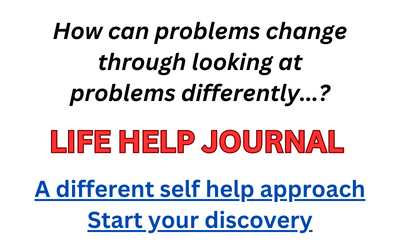Being alone has developed a terrible reputation. Look around and see how much emphasis is placed on not being alone: there are a variety of services that specialize in preventing people from being alone; medical and psychological advice circulates telling us that being alone is a threat to health and even to life itself.
I can recall an event from years ago, coming back from an outing and being asked by a family member whom I had gone with. When I responded that I had been by myself the family member cautioned me about spending time alone. Their accumulated knowledge told them that isolation was an unhealthy condition. I accepted their insight and became ashamed.
It was wrong for me to be alone. I should have been with others!
Many people have the strongest aversion to being alone. Watch as they scramble about to try and put themselves in the company of others. Observe as they turn on the television whenever they should be alone because television noise simulates being with other people. They are desperate to have a circle of friends or to be in an intimate relationship. They emotionally collapse if they spend much time in isolation.
And if the time in isolation becomes too long they want to die.
It is nonsense that humans are inherently averse to being alone. There are spiritualists who seek out isolation and spend years within it. They do not return from these experiences insane or in recovery from suicide attempts. To the contrary, they are often in a deeper sense of peace and content than they were previously — and are much more peaceful and content than the average person.
Are these spiritualists particularly extraordinary and so make it through isolation intact? Do they know of some secret that enables them to be okay when they are alone?
They are no more inherently extraordinary than the average person, but they know this (where many others do not): being alone is an ally and not an enemy because being alone allows for an unobstructed connection to the Divine Intelligence that is the core of all life.
What does this mean?
Being alone is the perfect opportunity for external and internal quiet, and quiet is the easiest means for knowing Divine Intelligence.
Spiritualist Rumi is quoted as saying ‘Silence is the language of God, all else is poor translation.’
The aura of Divine Intelligence is always in place, but it is obstructed by the noise of the ego. When the ego is quiet, when the internal ego chatter that is typically referred to as thinking ceases, Divine Intelligence is no longer obstructed and can be fully experienced. Can thinking cease when one is in the company of others? Yes, but this presents more of a challenge than when one is alone.
Consider a circumstance of external noise versus external silence. Which situation is easier for developing internal silence, where God can be heard (so to speak)?
When silence is embraced rather than resisted or avoided, we have the chance to know the self that is so often blocked by ego output. And a paradox comes to light too: When one no longer cares about achieving an outcome, in this case an outcome of being in the company of others, the outcome happens much more easily than it did when there was a strong attachment. So when being away from others is accepted, or when a lack of intimate companionship is accepted, now the companionship previously desired suddenly comes and does so without effort.
Any turmoil that comes with being alone is incorrect ego output and nothing more. The ego considers the circumstances of being alone and labels them, wrongly, as bad. In truth being alone is a wonderful chance for enlightenment. Rejoice when this opportunity presents itself.

